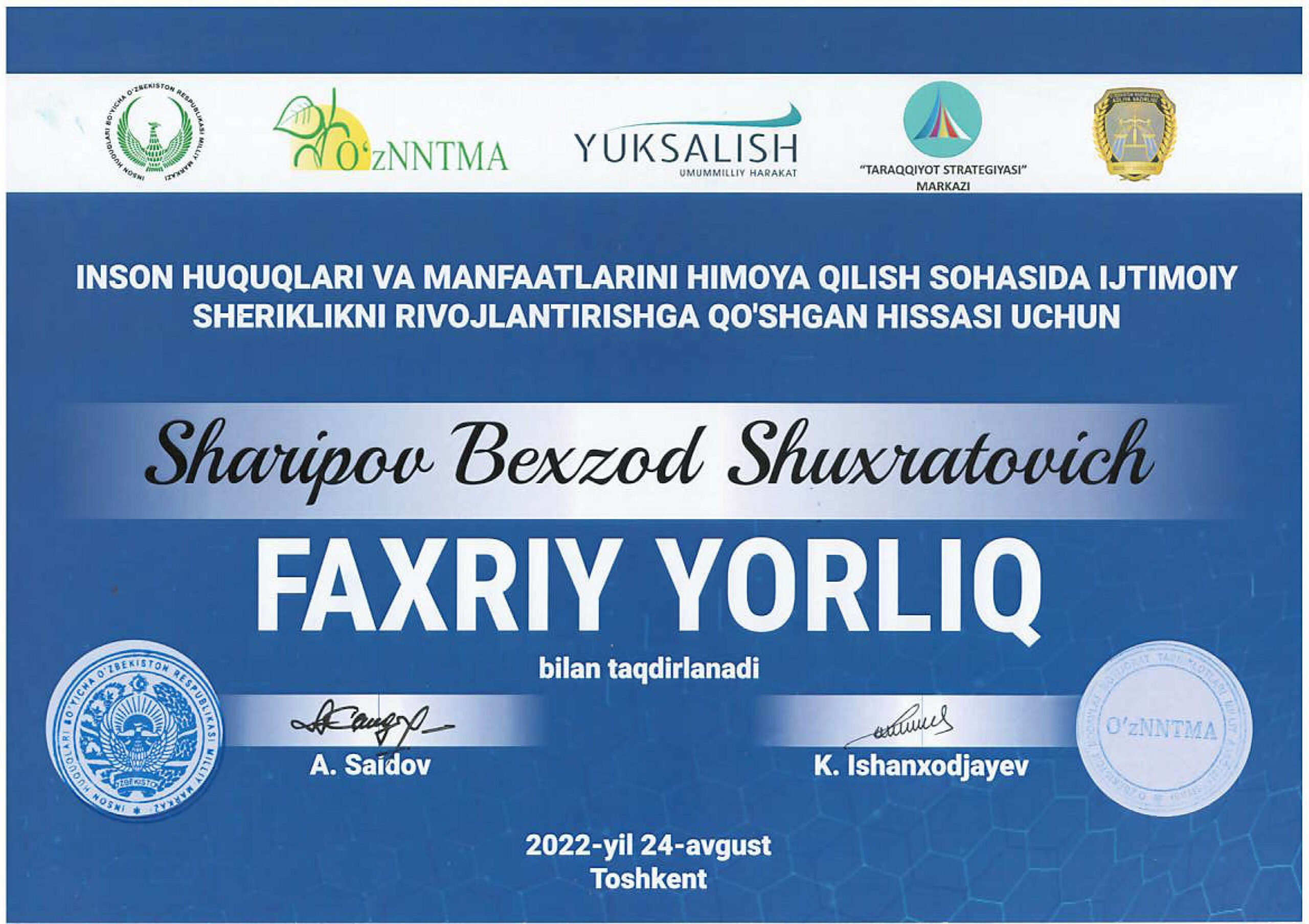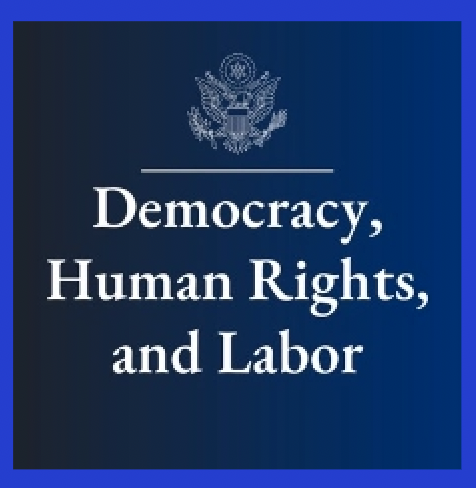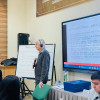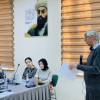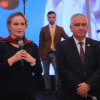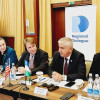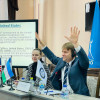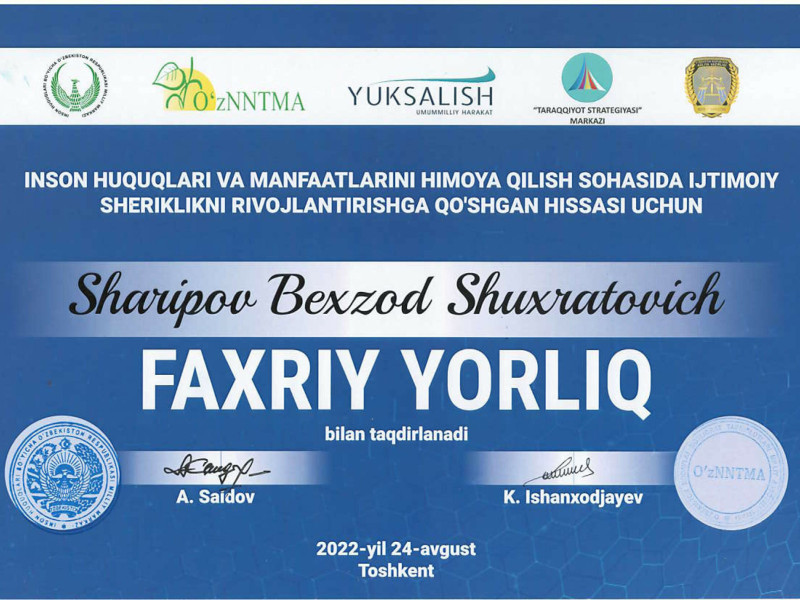
Transcript in English:
Forum ‘Cooperation between state bodies and NGOs in securing human rights and interests’ took place in a hybrid format. The importance of the agenda was underlined by the solid composition of the participants - more than three hundred representatives, including those from abroad, made presentations in the breakout sessions. Tamila Ikramova will tell you in more detail. The forum focused on improving the mechanisms of interaction between state bodies and non-state organizations in the field of human rights protection and further expanding the practice of consultations between state bodies and civil society institutions in this direction. According to the participants, the current state of human rights in the country has changed completely in recent years, and open and constructive interaction between civil society institutions has been established. The National Human Rights Strategy provides for the adoption of 33 legislative acts. By this time 12 laws are passed, 10 draft laws are developed, 5 drafts of a new code are prepared, and new editions of 7 acting codes are prepared, moreover, 7 decrees and 3 resolutions of the President of the Republic of Uzbekistan were adopted in the sphere. The presidential decree approved the concept of civil society development for 2021-2025, which includes issues of strengthening the relationship of social partnership between government agencies and NGOs. Mjusa Sever: "For almost 20 years in Uzbekistan, in my opinion, this is the first event of this scale, where the role and implementation of joint projects of the state and civil society were discussed. Earlier similar meetings have also been held, but this forum has absorbed quite a range of significant and topical issues. In addition, they are planning for all regions of the country to participate via videoconferencing. Civil society institutions can make a great contribution to the development of the state. I am very glad that here the representatives of ministries and agencies listened to the proposals, ideas, and initiatives of NGOs in the field of improvement of legislation, further ensuring freedom, transparency, and development of civil society institutions". After the plenary session, the national forum continued in two-panel sessions on the prospects of civil society development in the New Uzbekistan Development Strategy and The Place of Public Control in the Protection and Promotion of Human Rights. Dilovar Kabulova: "The Forum, of course, is a very important and necessary event, and very relevant today. The time when we note such issues as the cooperation of government organizations and non-governmental organizations to continue to promote human rights and interests, to know the needs of people. And these needs are studied through NGOs, summarized, and then transmitted to the appropriate government agencies. State agencies, of course, should also involve NGOs in their activities, and give them social orders, because NGOs have already earned credibility with the population, people trust them because they know that if they start to do something, they will see it through". More than 10 reports by representatives of the parliament, ministries, departments, and experienced leaders of practicing NGOs were heard in the breakout sessions. Several practical proposals and recommendations for further strengthening the relationship between state bodies and NGOs were developed. Natalya Shivaldova: "Indeed, such dialogues, such platforms for communication, for interaction, for consolidation of the efforts are very important and useful. It is an opportunity to speak out about some of the problems, discuss ways to solve them and outline some next steps. For example, here we are presenting the subject of ecology and ecological safety. Of course, we also submitted proposals. It allowed us to have a dialogue with the people who make the decisions". At the end of the forum, a final document was adopted based on the proposals and recommendations worked out. There was also a ceremony awarding a group of representatives of active NGOs who made a worthy contribution to the development of social partnership in the field of protection of human rights and ensuring the legitimate interests of people.
Regional Dialogue, represented by Bekhzod Sharipov, received a certificate of appreciation for its significant contribution to touching people’s lives to protect and ensure their human rights and interests.
